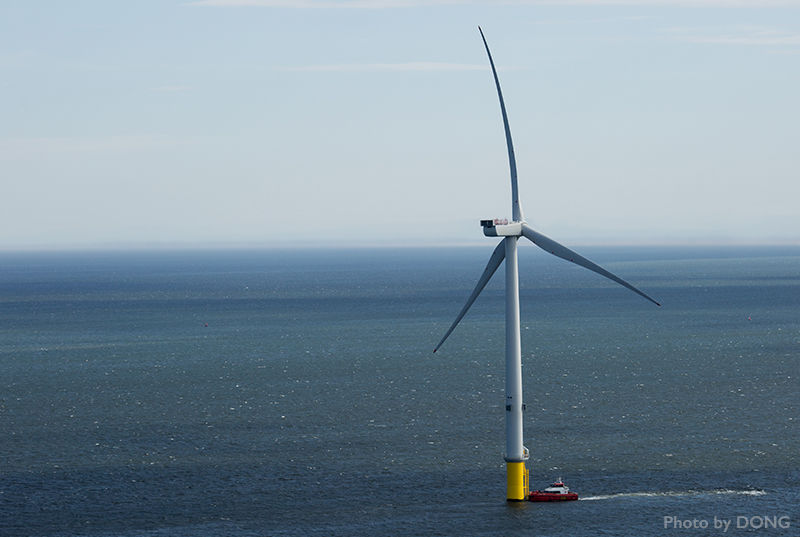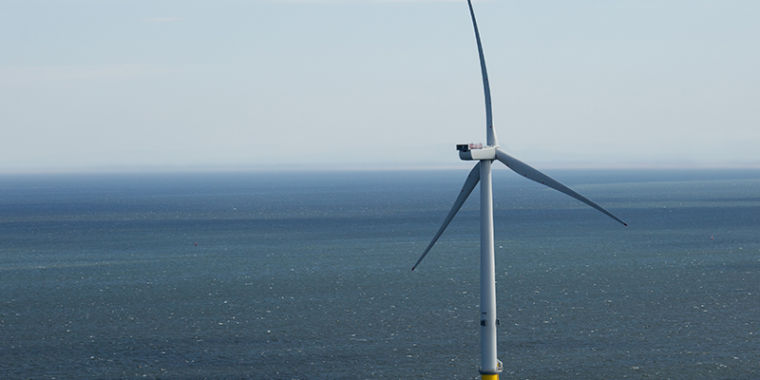
Dong Energy
The 1970s oil crisis, and how the countries impacted by it responded, has several lessons for modern countries looking to transition to renewables, according to the authors of a new paper. In 1973, the Arab countries in the Organization of Petroleum Exporting Countries (OPEC), stopped exporting oil to nations that supported Israel in the Yom Kippur War. The results saw oil shortages and prices in many nations—including parts of Europe, the United States, and Canada—skyrocket. In response, some began moving toward renewables.
However, there’s a political price to be paid for adopting policies that transition away from fossil fuels. These policies can be costly in the short term, prompting businesses and consumers to push back on them. Some nations—often in Europe—had advantageous political features or adopted tactics that softened the political blow, allowing them to move forward with these efforts. Others, such as the US and Canada, floundered. New research looked at OECD nations’ responses to the oil crisis and dug into the political reasons why these responses differed.
“We are… interested in trying to understand when a country’s policymakers are able to overcome opposition to [these] costly policies for businesses and households,” Jonas Meckling, an associate professor of energy and environmental policy at the University of California, Berkeley, and an author of the paper, told Ars.
Back in time
Meckling’s paper is a summary of a larger, yet-to-be-published piece of research. This effort goes back around five years when Meckling and colleagues began studying how the OECD countries responded to the oil crisis in the 1970s. According to Meckling, the team chose this timeframe because it offered the longest period to study efforts made toward driving a clean energy transition. The larger piece of research makes use of several methods, including statistical analysis of the OECD countries’ responses and various case studies. The current report focuses on understanding how policy responses developed.
Some 50 years after the events it analyzes, this work appears timely, given the impact that the Ukrainian war has had on energy prices. Again, a supply crunch and spiking energy prices have caused some European nations to amp up their green energy efforts, while others, including the US, have focused on producing more oil.
In writing the summary paper, Meckling and his team also introduced perspectives from the current energy crisis caused by the war in Ukraine. “It only anecdotally examines policy responses to the current energy crisis. Given that governments’ policy responses are still unfolding, we don’t have systematic data to compare country actions,” according to Meckling.
Insulation station
Meckling said that there are two main ways governments quickly adopted new energy policies without paying a major price at the polls. The first is insulation, but not the kind you put in your attic. In this context, it means that a government does not pay a political price for implementing or adopting costly policies, such as carbon pricing.
This can take several forms. For one, governments in countries with proportional representation tend not to suffer as much at the polls when they adopt costly environmental policies. Some of this is because, under proportional government rules, minority parties like the Green Party can end up in coalition governments. Countries that tend to have coalition governments—like many European nations—also make it harder for voters to pick any one partner party in a coalition to penalize. France is an example of an OECD nation that uses this mechanism.
Another way a country can be insulated is by having a strong environmental agency with a lot of autonomy. These organizations can often weather backlash easier because their high-level staff often have lifetime jobs, Meckling said. Alternatively, if an agency is not as autonomous, and its staff are politically appointed, its appointees may be more reliant on corporations for support, he added. As such, they can be more responsive to corporate pushback.
In general, the US has not been swift to adopt policies that transition toward renewables, Meckling said. However, one prime example of insulation is the California Air Resource Board. It is relatively autonomous from the state’s government and is not particularly subject to consumer, lobbyist, and business pressures.
Softening the blow
Beyond political insulation, the second key factor is compensation, which involves a government making a deal with groups that might stand to lose from adopting greener energy policies—like by subsidizing green steel production, Meckling said. Another option is for the government to provide welfare to individual households to compensate them for higher energy costs.
Germany tends to favor this mechanism, Meckling said. The country created the Coal Compromise, which brought together coal companies, unions, leaders from coal mining regions, and environmentalists to find a plan to eliminate coal use by 2038. The German government will provide economic support to workers and coal-dependent regions and support other industries to soften the blow.
Other countries chose neither option, opting instead to use market-driven solutions. They responded to price signals, waiting for the cost of certain green technologies to decrease. This means that they’ve been slower in adopting green energy policies. Some examples include the US, Canada, and Australia.
According to a press release on the research, the work offers “important lessons” for governments looking to reduce their emissions. Further, Meckling hopes that the paper will aid countries in tailoring policies to their specific institutional contexts, he said.
Science, 2022. DOI: 10.1126/science.adc9973 (About DOIs)








